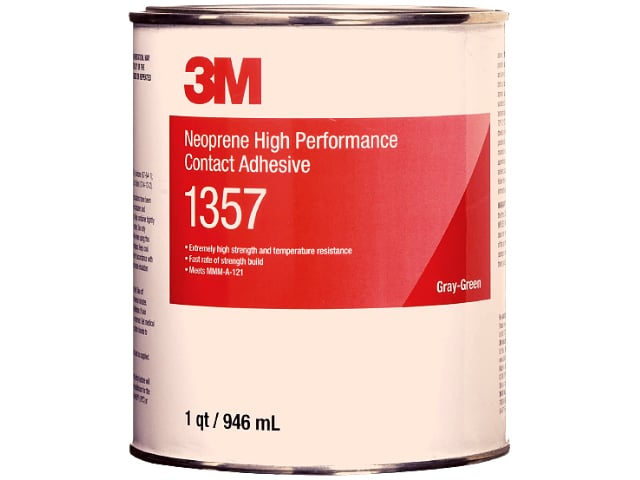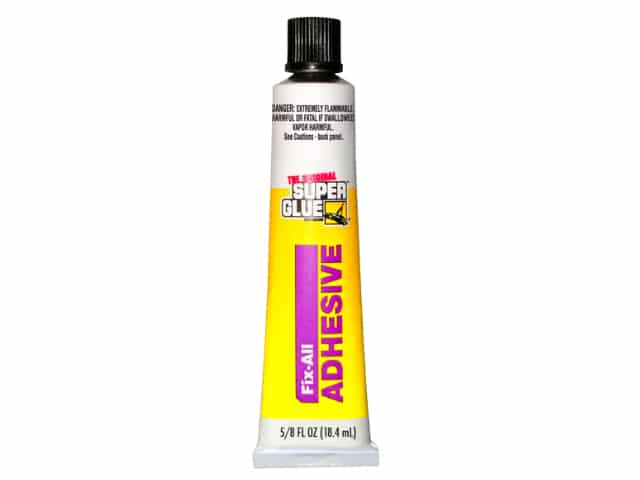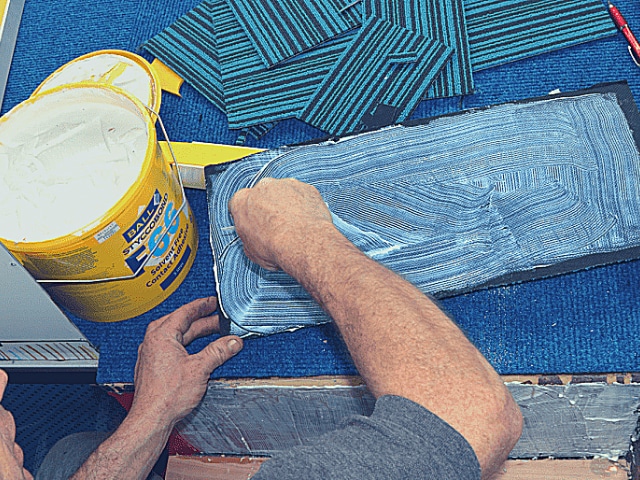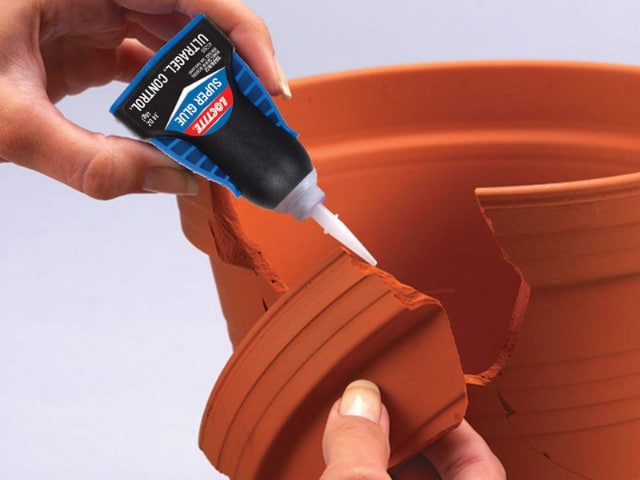Like most people, you probably have several glue bottles sitting in your house right now.
There’s probably at least one super glue bottle and one contact adhesive or contact cement bottle on your desk right now (even if you don’t know what contact adhesive is).
And while they might look similar, the two types of glue are very different, so the main question you should be asking yourself right now is: which glue should I use?
Read More: Hot Glue Vs. Super Glue
When to Use Contact Adhesive?

Contact adhesive can be used on various materials, including wood, metal, glass, plastics, and paper. It is typically used to bond materials that will be under stress or that need to be able to withstand high temperatures. It can also be used to repair broken objects.
Contact adhesive also can be used indoors or outdoors. It is essential to ensure that the adhesive’s surface is clean and free of dirt, oil, or grease. If the surface is not clean, the adhesive will not bond properly.
It is also essential to consider the climate when using contact adhesive. If it is too cold, the adhesive will not set properly. If it is too hot, the adhesive may become too soft and difficult to work with.
Contact adhesive should be applied to both surfaces that are to be bonded. Once the adhesive has been applied, the two surfaces should be pressed together firmly. The bond will become stronger as the adhesive dries.
When to Use Super Glue?

Most people think of superglue as an all-purpose adhesive, but there are a few different types of glue, each unique properties and uses. Here are a few tips on when to use super glue.
-If you need a quick fix for a broken item, super glue is a great option. It dries quickly and forms a strong bond, perfect for fixing things like shattered vases or broken jewelry.
-Super glue is also great for bonding non-porous materials, like metal or glass. If you need to glue together two pieces of metal, super glue will create a strong, lasting bond.
-If you’re working with small, delicate pieces, super glue is a good choice because it provides an exact bond. This makes it ideal for projects like model-making or jewelry-making.
-Super glue can be used on various surfaces, including wood, plastic, metal, and glass. However, it’s essential to test the glue on an inconspicuous area first to make sure it adheres properly.
-Super glue should not be used on porous materials like paper or cloth, as it will not form a strong bond. Additionally, super glue should not be used on food-safe surfaces, as it is not considered safe for ingestion.
In general, super glue is an excellent all-purpose adhesive that can be used for various projects. With a little bit of trial and error, you can find the perfect application for your needs.
Read More: Contact Cement vs. Gorilla Glue
Contact Adhesive vs. Super Glue?
Contact adhesives are two-part adhesives applied to both surfaces that need to be bonded. Once the adhesive has been applied, the two surfaces are pressed together. The advantage of contact adhesives is that they provide a very strong bond between surfaces.
Super glue is a one-part adhesive that is applied to one surface. The other surface is then pressed into the adhesive. Super glue provides a strong bond between surfaces, but it is not as strong as a contact adhesive.
Read More: Advantages and Disadvantages of Contact Adhesive
Tips for Using Contact Adhesive
There are many benefits to using contact adhesive, so it is such a popular product. It is useful for bonding many different materials, including metal, glass, wood, and plastics. It is also resistant to heat and chemicals, ideal for many industrial applications.
However, there are a few things to keep in mind when using contact adhesive. First, reading the label carefully and following the directions is essential. This will help to ensure that the adhesive bonds properly and safely.
Second, it is important to work in a well-ventilated area. The fumes from contact adhesive can be harmful, so it is essential to ensure plenty of ventilation.

Third, be sure to wear gloves when working with contact adhesive. The adhesive can be tough on the skin and can cause irritation.
Fourth, be sure to clean up any spills immediately. The adhesive can be difficult to remove once it has dried, so it is important to clean up any spills.
Finally, when storing contact adhesive, keep it in a cool, dry place. The adhesive can degrade if it is exposed to heat or moisture.
Contact adhesive is a versatile and durable product that can be used for various projects. By following these tips, you can ensure that your project goes smoothly and that the adhesive bonds properly.
Read More: E6000 Vs. Contact Cement
Tips for Using Super Glue
Super glue is an extremely powerful adhesive that can bond almost any material. However, a few things to keep in mind when using this product to ensure the best results.
First, make sure the surfaces you are trying to glue together are clean and dry. Any dirt or grease on the surface will prevent the glue from bonding properly. You can clean the surfaces with rubbing alcohol or a mild soap and water solution.
Next, roughen up the surfaces if they are smooth. This will help the glue to grip better. You can sand the surfaces with grit sandpaper or using a file.
When you are ready to glue the surfaces together, apply a small amount of glue to one surface. You can use a toothpick or a cotton swab to apply the glue. Then, bring the two surfaces together and press them firmly.
Hold the surfaces together for a few seconds to give the glue time to bond. Then, set the piece aside to dry for at least an hour.
If you need to remove the glue from your skin or surfaces, use acetone or nail polish remover.

Is Adhesive Stronger Than Super Glue?
Last Opinion
If you’re still unsure what kind of adhesive you need, remember that super glue and contact adhesive are very different products.
Contact adhesive is used to adhere similar materials together, such as wood to wood or plastic to metal. In contrast, super glue is typically used for bonding dissimilar materials—for example, metal to plastic or ceramic.
When in doubt about which product to choose for your project, always consider what you will be gluing and use an appropriate adhesive accordingly.

